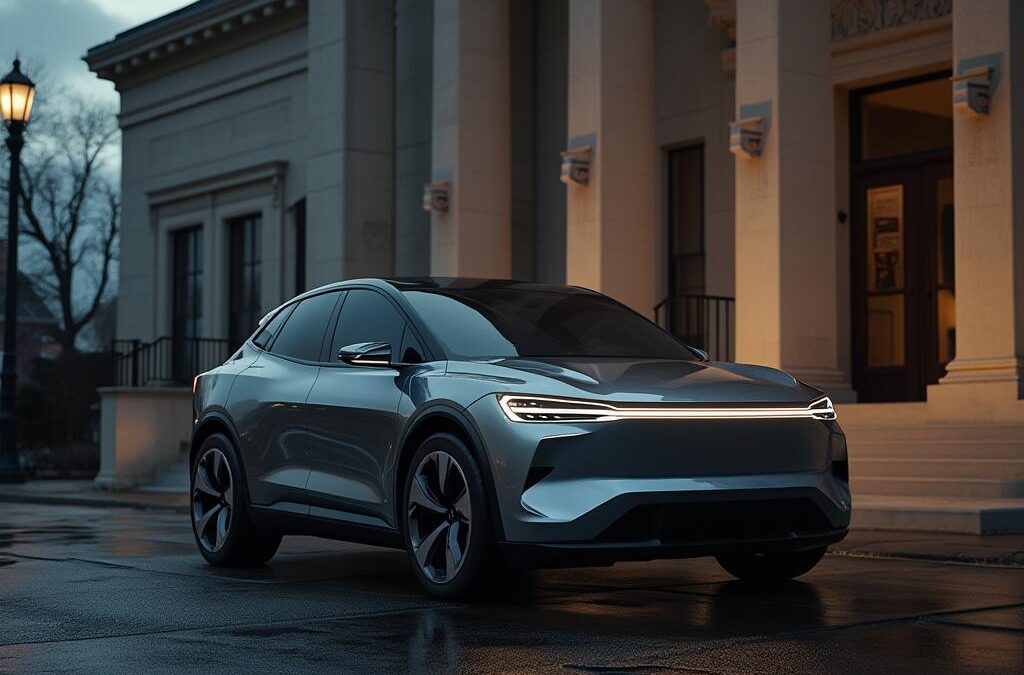A Rivian Lawsuit Takes Aim at a Powerful Car Dealers Association
In a bold move that could reshape the automotive retail landscape, Rivian, the electric vehicle (EV) manufacturer, has filed a federal lawsuit against the State of Ohio. The legal challenge targets the Ohio Department of Motor Vehicles and the state’s restrictive laws that prohibit direct-to-consumer car sales for most automakers.
At the heart of the dispute is Ohio’s decades-old law requiring all new vehicle sales to go through independently owned, franchised dealerships. Rivian argues this rule stifles competition, artificially inflates prices, and limits consumer choice. As a result, the company cannot operate retail stores or sales outlets in Ohio, forcing buyers to purchase vehicles from neighboring states and have them shipped to Ohio service centers.
The Tesla Exception and Rivian’s Challenge
Rivian’s lawsuit highlights an unusual exception: Tesla, its direct rival, secured a special agreement with the Ohio Dealership Association in 2014. This deal allowed Tesla to open three retail stores in the state, making it the only automaker with state-sanctioned direct-to-consumer sales in Ohio.
Rivian claims this carve-out creates an uneven playing field, granting Tesla an unfair competitive advantage. The lawsuit describes Ohio’s law as “irrational in the extreme,” accusing the state of favoring traditional dealership interests and a single competitor while harming the broader market and consumer interests.
Rivian’s Arguments and the Broader Context
Rivian contends that Ohio’s direct sales prohibition is unconstitutional. The company argues that the law reduces competition, limits consumer choice, and increases costs for buyers. Mike Callahan, Rivian’s Chief Administrative Officer, has called Ohio’s ban on direct sales outdated and harmful, emphasizing that it prioritizes dealership profits over consumer preferences.
This legal battle is part of a larger national debate over the future of car sales. Tesla has fought similar battles in multiple states, sometimes successfully challenging dealership-dominated laws. Rivian and other EV manufacturers, like Lucid Motors, are also pushing against these restrictions, with ongoing legal challenges in states like Illinois and Texas.
Ohio remains a key battleground due to its strong dealership lobbying power, which has maintained regulations favoring the traditional franchised sales model. Rivian’s lawsuit seeks to allow direct-to-consumer sales in Ohio, arguing that the current system is consumer-unfriendly and anticompetitive.
The outcome of this case could have far-reaching implications for the automotive industry, particularly as EV companies continue to challenge the traditional dealership model. For now, Rivian’s lawsuit represents a significant step in the ongoing fight to redefine how cars are bought and sold in the United States.
Rivian’s First Legal Challenge and the Broader National Context
This lawsuit marks Rivian’s first direct legal challenge against a state’s direct-sales restrictions, though similar battles have been waged by other electric vehicle manufacturers across the U.S. Tesla, a pioneer in direct-to-consumer sales, has fought and won several such battles in various states, setting a precedent for EV companies challenging traditional dealership laws.
In Illinois, for instance, Rivian and Lucid Motors successfully secured dealership licenses, allowing them to sell directly to consumers despite opposition from local dealership associations. However, in Texas, Lucid Motors faced a legal setback when a court ruled against its direct-sales model, a decision the company is currently appealing. These ongoing legal battles highlight the growing tension between legacy automotive retail models and the disruptive strategies employed by EV manufacturers.
Ohio’s Unique Position in the National Debate
Ohio stands out as a particularly challenging environment for direct-sales advocates due to its powerful dealership lobbying groups. The Ohio Automobile Dealers Association has been instrumental in maintaining the state’s restrictive laws, which heavily favor the traditional franchised dealership model. This has made Ohio a key battleground in the national debate over the future of automotive retail.
Rivian’s lawsuit seeks to overturn these restrictions, arguing that they are outdated and harmful to both competition and consumers. The company is asking the court to allow it to apply for dealership licenses, enabling it to operate retail stores and sales outlets directly in Ohio. If successful, this could pave the way for other EV manufacturers to follow suit, reshaping the automotive retail landscape in the state and potentially beyond.
Implications for the Automotive Industry
The outcome of Rivian’s lawsuit could have significant implications for the automotive industry, particularly as electric vehicle companies continue to challenge the traditional dealership model. Rivian’s case underscores the broader tension between legacy automotive retail practices and the direct-to-consumer strategies favored by many EV manufacturers.
As the automotive industry transitions toward electric vehicles, the debate over direct sales is expected to intensify. Rivian’s legal challenge in Ohio is a pivotal moment in this ongoing struggle, with the potential to influence similar battles in other states and shape the future of how cars are bought and sold in the U.S.
Conclusion
Rivian’s lawsuit against Ohio’s restrictive direct-sales laws marks a pivotal moment in the automotive industry’s evolution. By challenging the state’s decades-old regulations, Rivian aims to level the playing field and promote consumer-friendly practices. The case highlights the unfair competitive advantage granted to Tesla and underscores the broader national debate over the future of car sales. As electric vehicle manufacturers continue to push against traditional dealership models, the outcome of this lawsuit could have far-reaching implications, reshaping how cars are bought and sold across the U.S.
The legal battle in Ohio is part of a larger movement by EV companies to dismantle outdated sales restrictions. With ongoing challenges in states like Illinois and Texas, Rivian’s lawsuit represents a significant step toward creating a more competitive and consumer-centric automotive retail landscape. The future of car sales hangs in the balance as legacy dealership models face increasing pressure from innovative, direct-to-consumer strategies.

